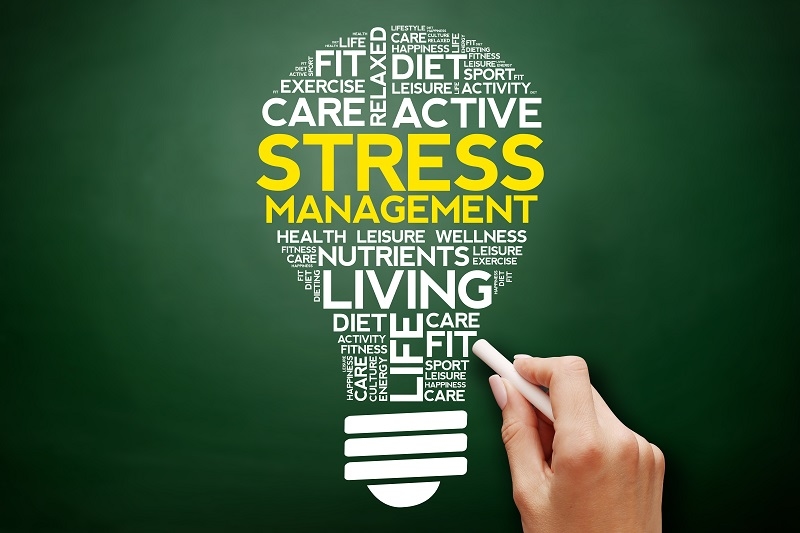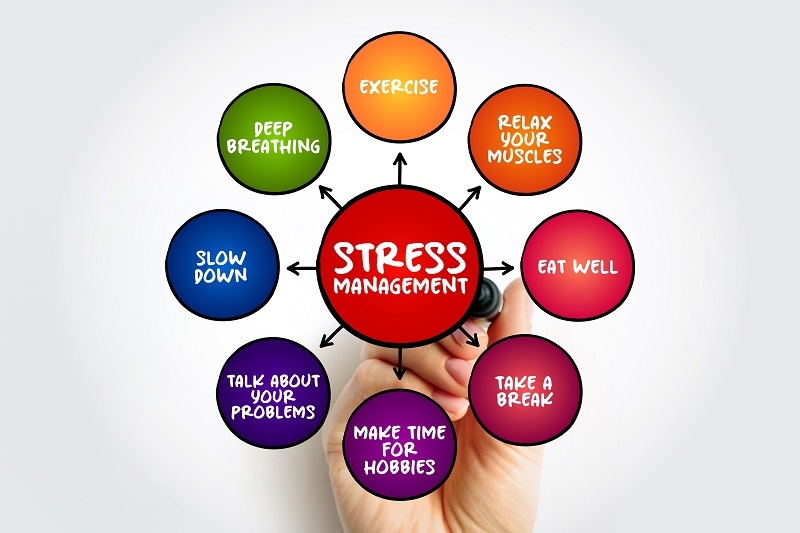
Living a life with any disorder can be stressful. The problems related to medical treatments, changes in lifestyle, and continuous anxiety about getting better are the primary reasons for stress in the body and mind. Stress makes the illness get worse and may delay the recovery process. This is the main reason why having learned and practicing stress management techniques should be regarded as an important step in one's general wellness.
This blog delves deeply into very practical methods of handling various kinds of stress, retaining mental wellness, and improving the quality of patient care, especially for those who face health concerns for a prolonged period of time. By concentrating on daily lives, surroundings, and emotions, and supercharging the mood with positive hymns, patients will be well-equipped with coping strategies that will impact their lives immensely positively.
Receiving an unpleasant diagnosis will change a person's, life situation overnight. Medical appointments, drugs, and lifestyle restrictions will likely become part of the daily routine. Even though they are compulsory to the treatment, they might evoke worry, irritation, and at times fear in a patient.
Constant stress problems hamper the immune system, cause high blood pressure, interrupt sleep, and create hormone imbalances. In case of patients who already have some kinds of diseases, this extra stress will definitely worsen their symptoms. For that reason, stress control is so crucial in patient care. The elimination of stress means the creation of a space for rest, positive vibes, and healing, which are as important as the medicine that the patient receives.
Here are some easy stress management techniques for patients:
One of the most effective stress reduction methods is slow and controlled breathing.
The deep, prolonged breaths, which activate the calming part of the nervous system, bring about a reduction in the heart rate and ease the body tension. A patient could do this when waiting for a doctor, before taking a pill, or at any time he/she feel anxious.
Through doing meditation, patients distance themselves from negative thoughts and keep focus on the moment. It can really turn around the mental well-being of the person following just a single day of ten minutes of guided meditation, which could be accessed through smartphone apps or online videos.
The dragging and pushing of muscles, yogic postures, or even a brisk walk all work together to release the tightening of muscles and also encourage the health of the lifestyle.
For patients with disabilities, even chair exercises can be a way of relaxing and stimulating blood circulation.
One of the most effective ways of letting go of stress is writing it down. A patient can carry a diary with him where he notes down personal hardships, things to be thankful for, and even small victories. This going-ahead will foster inner reflection and release of emotions.
Listening to music that calms will also have a soothing effect on a person's brain.
For instance, for a patient who cannot move freely, music is one of the strongest tools he/she can use to divert attention from pain and anxiety.
The fear of relapse, the frustration caused by physical limitations, and the feeling of being out of the social world may eventually lead to sadness or even get the person angry. Emotional balance building is necessary as it leads to permanent recovery.
The regulation of emotions pushes the patients to experience the feeling of being in control which is good stimulators of stress reduction and leads to the improvement of coping strategies that are used in daily life.

Maybe patients are unable to totally avoid stressful situations, yet, they can choose to control their stress levels by practicing the following coping strategies.
These methods will not only pave the way for an easy way through daily routines but also keep mental well-being at good levels for a long time.
Healthy small daily habits can make a big difference in stress levels. Patients should concentrate on modest but regular steps to improve their lifestyle health.
These methods may look quite basic, but they are capable of providing a powerful effect on one's stress management level, besides medical treatments.
The patients who are surrounded by solid friends and family support have a better chance to recover quickly and experience less stress. Those who are understood and cared for emotionally are capable of handling difficulties easier. In addition, patient care should focus on emotional and social issues rather than only on medical treatments.
These support systems provide patients with power and enable them to sustain their emotional stability during their journey.
The patients often complain that their lives are out of control due to illness. The formation of the everyday routine adds organization and decreases doubt. Be it a proper meal plan, workout schedule, or relaxation moment, routine leads to stability in life. Such predictability is calming for anxiety, and stress management becomes easier to do in this way.
Healing sometimes happens through tiny happy moments. Patients can improve their mental well-being by centering on the following simple pleasures:
These very simple things do not require much and yet they create resilience in patients and remind them that joy can still exist during the harshest of times.
The health conditions that a person has to live with can be very difficult indeed. Mental wellness, planning and following through with health-oriented routines, as well as having strong relationship networks made up of supportive people, are all significant constituents of excellent patient care.
By addressing the issue of coping head-on through the use of strategies and by allowing health to become a priority in their lifestyle, patients will be able to keep going even through the most difficult times.
This content was created by AI